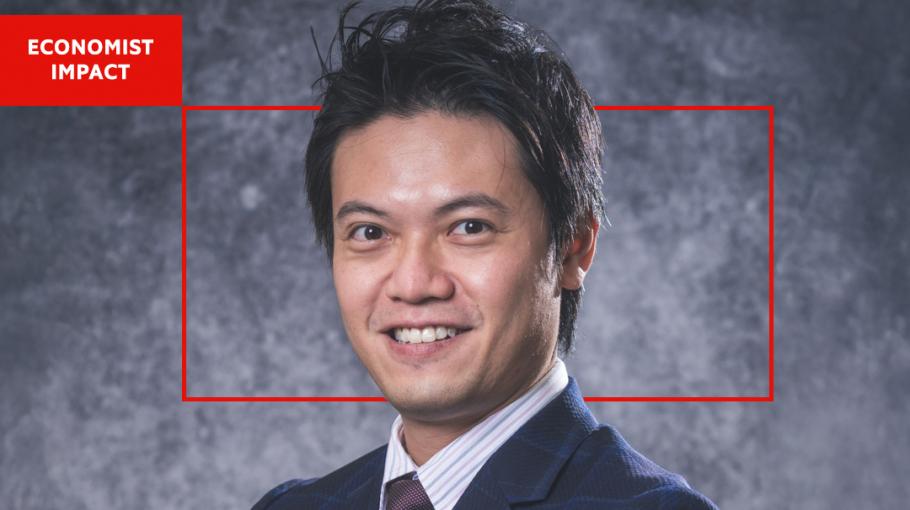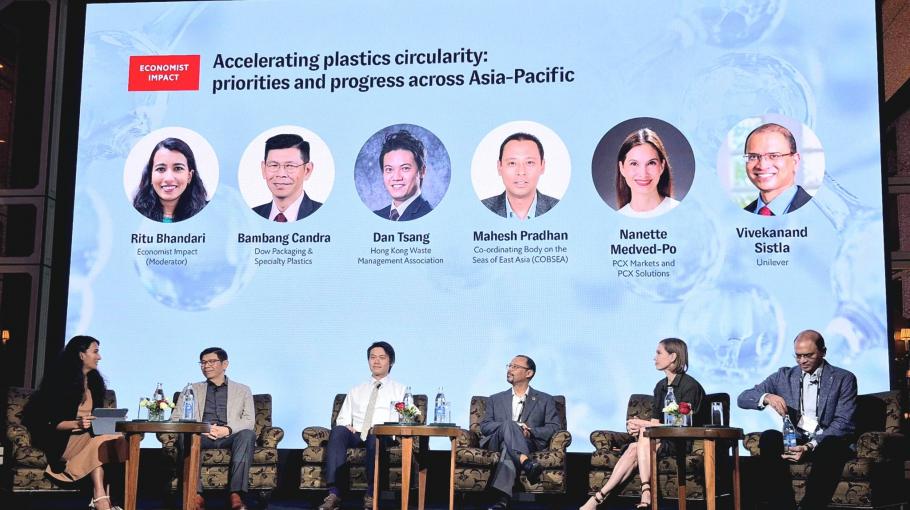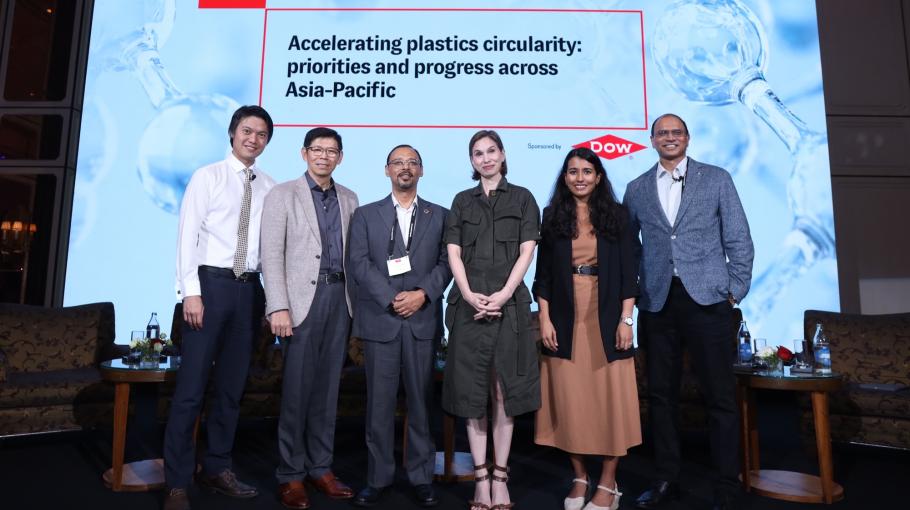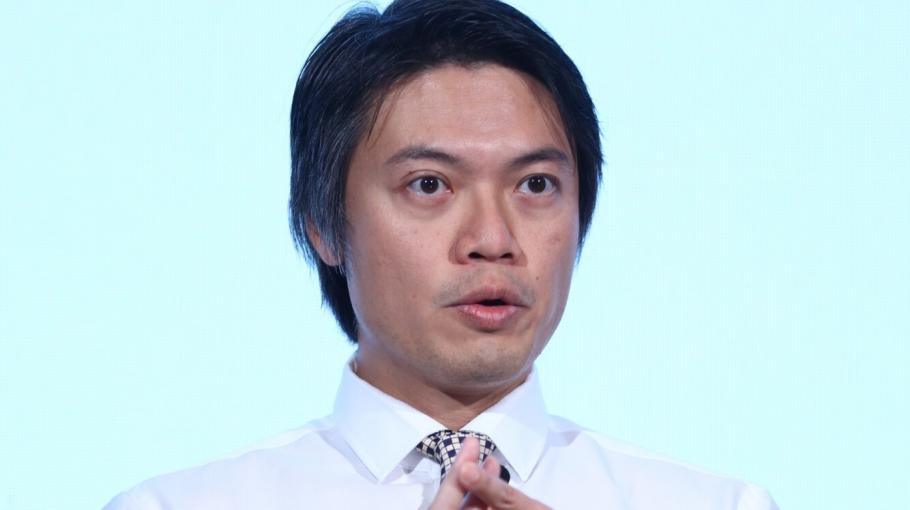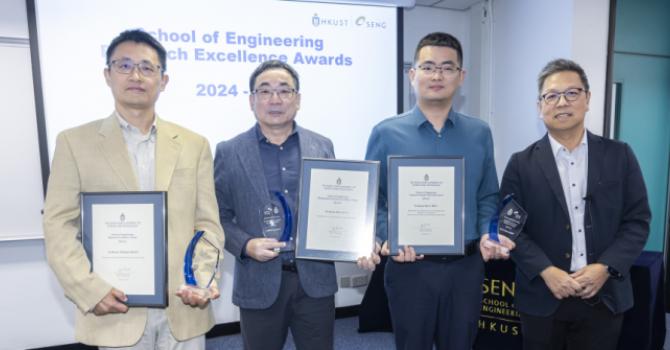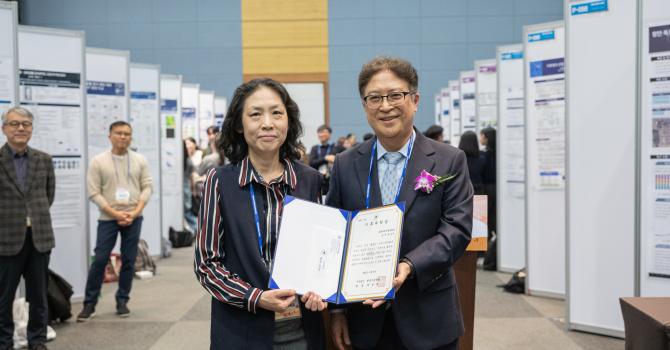Ir Prof. Dan Tsang and Experts Shared Insights into Plastics Circular Solutions at Sustainability Week Asia 2025
Ir Prof. Dan Tsang of the Department of Civil and Environmental Engineering and the Hong Kong Waste Management Association (HKWMA), was invited to chair a panel discussion on 24 March at Sustainability Week Asia 2025, hosted by Economist Impact (part of The Economist Group), in Bangkok, Thailand. The panel discussion revolved around the topic “Accelerating plastics circularity: priorities and progress across Asia-Pacific” and was an invitation-only salon event of Sustainability Week Asia 2025, sponsored by the Dow Chemical Company (Dow Inc.).
Sustainability Week Asia is an annual event that provides a platform for leaders such as chief sustainability officers (CSOs) from the technology, business, policy and research sectors as well as non-profit organizations to gather and discuss sustainability issues facing the Asia-Pacific, allowing them to not only strategize for more collaboration and actionable outcome but also foster relationships that are crucial for advancing sustainability goals amid Asia’s unique economic and geopolitical complexities, state investment in renewables, and ecological challenges. This year’s “Accelerating plastics circularity” panel discussion, in particular, brought together experts in sustainability, product development, packaging and policy to explore ways to tackle plastic pollution and accelerate circularity.
Plastics are essential for packaging and delivering some of the most important everyday consumer products ranging from food and beverages to cosmetics and cleaning products, but as much as the material is excellent for preserving and protecting purposes, the pollution caused by improper disposal of plastics is a worldwide problem, and the global plastics value chain has been looking for ways to transform business models in order to decarbonize the production of the material and to ensure that it has a more circular lifecycle—as of yet, only about 9% of plastic produced has been recycled; at this rate, without actions to intervene, there will be more plastic than fish in the ocean by 2050.
Across the world, different countries’ actions towards addressing the issue of plastic are uneven: some countries set ambitious recycling targets to eliminate single-use plastics, but others lag behind in their efforts. In the Asia-Pacific, for example, because the region comprises numerous countries and governance structures, waste management and collection methods can be quite varied, and, in turn, the overall issue of plastic can be particularly difficult to tackle. In March, 2022, at the conclusion of the United Nations Environment Assembly (UNEA-5.2), the heads of state, environment ministers and other representatives from 175 nations agreed to create an international legally-binding mandate to end plastic pollution. Central to this agreement was the establishment of the Intergovernmental Negotiating Committee (INC) tasked with producing that mandate—the UN Plastics Treaty—to address the full life cycle of plastics. In November 2024, the fifth session of the INC (INC-5) met in Busan to discuss a global treaty on extended producer responsibility (EPR) policies to hold manufacturers, producers and brands accountable for environmental impact beyond consumer use. This would have presented a significant opportunity to unlock economic potential and enable investment in circular solutions. However, at the conclusion of INC-5, negotiators from over 170 countries remained gridlocked, failing to agree on the implementation of measures to reduce plastic production, and overall progress was obstructed not only by the fossil fuel and plastics industries but also rights-holders disproportionately impacted by plastic pollution.
Nevertheless, the majority of the countries remained committed to a strong treaty as well as legally-binding targets and robust measures to reduce plastic production and to regulate harmful chemicals, and numerous companies of consumer packaged goods (CPGs) in not only Asia but also elsewhere have already been rethinking the design of their products and packaging by, for example, using more sustainable materials. Others are integrating smart packaging technology to track products, reduce waste, extend product shelf life and to act in compliance with the aforementioned EPR. Still, more needs to be done, and that is why panel discussions such as “Accelerating plastics circularity” chaired by experts like Prof. Tsang are paramount for carrying on the dialogue and exploring and illuminating how the entire plastics value chain can improve recycling rates via, for example, studying consumer behavior, recycling access and investments in waste infrastructure.
Besides Prof. Tsang (Chairman, representing the Hong Kong Waste Management Association), the other panelists of “Accelerating plastics circularity” included Bambang Candra (Commercial Vice-President for Asia-Pacific of Dow Packaging & Specialty Plastics), Mahesh Pradhan (Coordinator, and Secretariat of the Coordinating Body on the Seas of East Asia (COBSEA) of the UN Environment Programme), Nanette Medved-Po (Founder and Executive Chairperson, PCX Markets and PCX Solutions), and Vivekanand Sistla (Head of R&D, Unilever). The panel discussion was moderated by Ritu Bhandari, Manager of Sustainability, Policy and Insights at Economist Impact.
